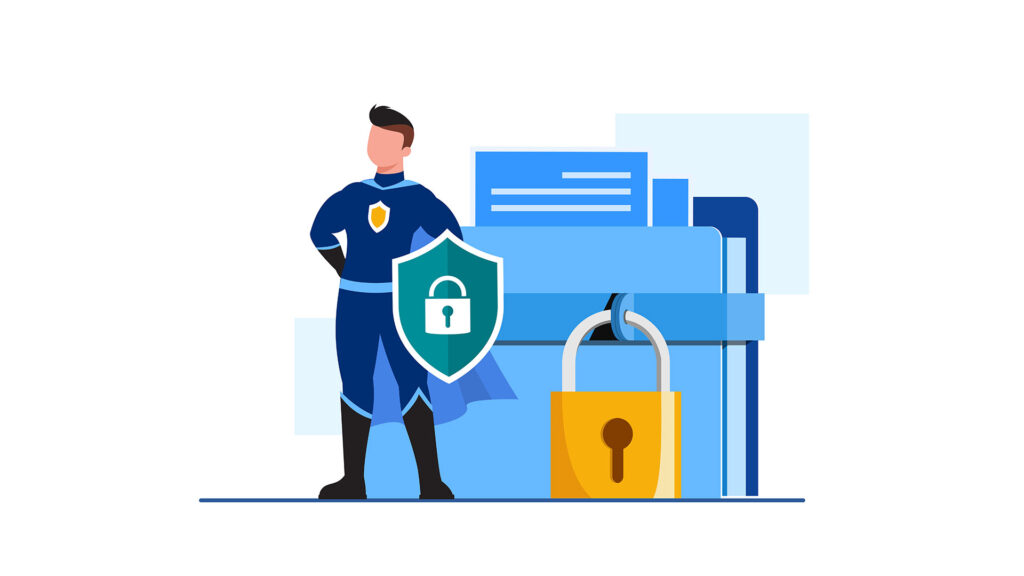One of the biggest threats to search engine users is the risk of encountering malicious or fraudulent websites and online scams. This can include phishing attacks that aim to steal personal information, fake online stores that swindle unsuspecting customers, or websites hosting malware that can compromise the security of a device.
Search engines like Google bear a significant responsibility in combating spammy websites to ensure the safety and trustworthiness of their platforms. They must develop and refine robust algorithms that can identify and penalize websites engaging in malicious activities.
This is where the concepts of E-A-T and Y-M-Y-L come into play. These terms determine where a website will rank within the search engine results page, if at all. But what exactly do E-A-T and Y-M-Y-L mean, and how can you harness their power to propel your website’s success?
- E-A-T, which stands for Expertise, Authoritativeness, and Trustworthiness, is a concept used by search engine algorithms to evaluate the quality and credibility of web pages. It assesses whether a website’s content is created by knowledgeable experts, whether the website itself is considered authoritative in its field, and whether the information provided is trustworthy.
- Y-M-Y-L, or Your Money or Your Life, refers to content that can significantly impact a person’s health, financial stability, or overall well-being. Search engines prioritize E-A-T with Y-M-Y-L content, as they want to ensure that users receive reliable and accurate information when making important decisions.
It is essential for website owners to focus on building expertise, authority, and trustworthiness in their content, especially when dealing with topics that fall under the Y-M-Y-L category, as it can positively impact their website’s visibility and reputation in search engine results.
Who determines the quality of a website?
The quality of a website is determined by real people known as quality raters, who assess how well Google’s search results meet the needs of users. These quality raters follow the guidelines set by Google, known as the Search Quality Rater Guidelines, which were introduced in 2014 and have been periodically updated since then.

While the feedback from quality raters does not directly impact search rankings, it plays a crucial role in helping Google refine and improve its algorithms over time.
In the guidelines, the concept of E-A-T (Expertise, Authoritativeness, and Trustworthiness) has been modified, and is now considered as one factor in determining Page Quality, rather than being synonymous with Page Quality.
This implies that E-A-T is an essential aspect evaluated by quality raters to assess the overall quality and reliability of a website.
What determines the quality of a website?
The quality of a website is determined by various factors, with quality raters utilizing each aspect of the Expertise, Authoritativeness, and Trustworthiness principle to evaluate the quality and effectiveness of search results.
Expertise
Expertise refers to the knowledge and expertise demonstrated by the content creators and the website itself in a particular field or topic. To determine expertise, search quality raters review the creator of the main content of a page.
- Qualified Expertise: Is the author an expert on the topic? Do they have any qualifications or credentials in this area? As an example, if people without medical degrees posted unsubstantiated medical advice on a doctors forum, they would not be considered experts.
- Everyday Expertise: Quality raters also evaluate for “everyday expertise,” which means someone is well-versed in a topic without necessarily having expert credentials. Everyday expertise could refer to a popular food blogger who provides useful reviews for restaurants, which requires less formal expertise or education.
- Real-life Experience: Forum participants sharing stories about loved ones living with cancer and other illness is a mild form of expertise. Social media sites like Reddit often feature people sharing their experiences like these. They’ve amassed expertise because they’ve experienced it, but it’s not considered legitimate medical advice.
Authoritativeness
Authoritativeness considers the reputation and authority of the website and its creators, including factors such as credentials, industry recognition, and backlinks from reputable sources. Google quality raters are instructed to review the authoritativeness of the creator of the content and the website.

For example, an article on back pain from WebMD is authoritative because:
- WebMD is a well-known website for medical advice, they have been around since 1996.
- The authors are wellness professionals or they ask a medical expert to check their content for accuracy.
Ideally, influencers and authorities in your industry link to your content because it provides value. In other words, people know you, know your background, and look to you as a leader in your industry.
Authority means you have a long history and social credit. Other people in your industry accept you as a reputable or influential source of information.
Related: The Evolution of TLDs: Understanding Their Role in Online Branding
Trustworthiness
Trustworthiness is similar to authority in that it assesses the reliability, accuracy, and transparency of the information presented on the website, taking into account factors such as citations, references, and clear disclosure of sources. A trustworthy website is the key foundation for building authority.
A trustworthy website should be clear about who wrote the content and edit for factual accuracy. The page layout should be clean and only cite other trustworthy sources. Advertising and third-party scripts should be kept to a minimum in order to showcase the main content and protect users privacy.
The server response should be fast and the connection secured over HTTPS. This is clear in section 6.1 of the Quality Rater Guidelines, as Google refers to “a shopping checkout page that has an insecure connection” as untrustworthy.
Related: Is your website secure? Why HTTPS is no longer an option
How can I improve the quality of my website?
The quality of a website is determined by various factors, with quality raters utilizing each aspect of the E-A-T (Expertise, Authoritativeness, and Trustworthiness) principle to evaluate the quality and effectiveness of search results.
Search engines place a higher emphasis on evaluating the Expertise, Authoritativeness, and Trustworthiness of Y-M-Y-L websites to ensure that users are provided with reliable and trustworthy information. Therefore, having strong E-A-T signals and providing high-quality content can positively impact the visibility, reputation, and credibility of a website.
Even if you don’t host Y-M-Y-L content, you will rank higher among your competitors if you follow these quality guidelines:
1. Focus on quality, factual and digestible content.
2. Provide author info and transparency.
3. Use credible sources in your industry.
4. Reach out to industry peers to build authoritative backlinks.
Related: How to create killer website content
